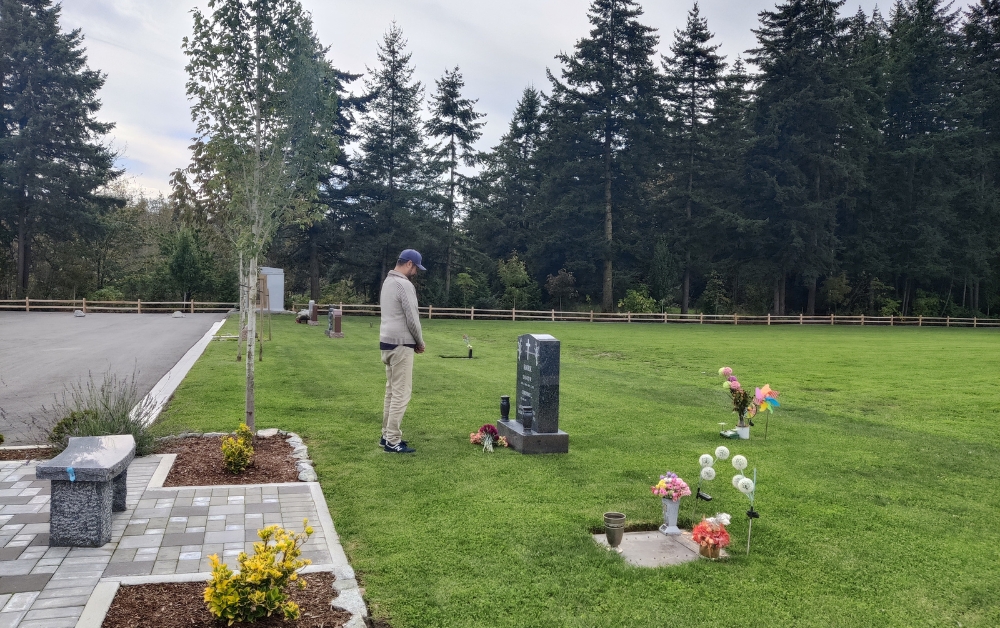Not every family legacy feels like a blessing. For many, it’s a story marked by grief, silence, or unresolved pain. Instead of comfort, it may carry weight. Instead of direction, it might leave questions. Even so, legacy doesn’t have to remain as it was handed to you.
Family legacy is more than tradition or inheritance. It’s an emotional and ethical thread running through generations. When that thread is frayed or tangled, healing starts with awareness and with choice.
This article explores how storytelling, grief work, and quiet rituals like grave visits can help you reimagine your family legacy.
Healing doesn’t erase the past. But it can shape the future.
Relational Ethics: The Hidden Blueprint of Family Legacy
Family legacy often lives in places we don’t expect. In contextual therapy, it’s seen as something more than memory. It’s an emotional blueprint. Ivan Boszormenyi-Nagy called this blueprint invisible loyalties, unspoken expectations, sacrifices, and responsibilities passed through generations.
These loyalties live beneath the surface. You may feel guilt for being cared for when someone else wasn’t. Or resentment that your own needs were overlooked. In many families, the emotional ledger goes unspoken until someone chooses to name it.
According to Nagy, legacy is shaped across 4 dimensions:
- Facts
- Psychology
- Transactions
- Relational ethics
Most families focus only on the first two. But true healing often begins in the fourth in fairness, acknowledgement, and accountability.
A grave visit can become part of that process. Standing there, you may feel gratitude. Or grief. Or confusion. Whatever you bring, you’re showing up. In that act, you witness what was once hidden. You create space to begin again on your terms.
Loss, Legacy, and the Need for Meaning
Grief doesn’t just change what you feel. It changes what you know about your place in the world. For some, a loss reopens wounds passed down through generations. For others, it reveals truths no one spoke aloud. In those moments, family legacy becomes a pain you feel in your soul.
Robert Neimeyer’s work in grief therapy emphasizes meaning reconstruction, the process of making sense of life after loss. It’s not about closure. It’s about creating a story that allows you to keep living with clarity and purpose.
Grave visits can be part of that meaning-making. Laying a flower, speaking a name, or even just sitting in silence can become acts of emotional anchoring. These small rituals help weave loss into a broader narrative, one that holds both love and pain and still moves forward.
Through reflection, not avoidance, you begin to carry legacy differently. Not as a burden. But as a thread you choose to hold and reshape.
This helps reshape your family legacy into something lived with clarity.
Legacy After Trauma: Growing from the Wound
Sometimes, trauma shakes the roots of your family legacy. What once held your story together may fall apart or no longer feel right. But in that unraveling, something new can emerge.
Richard Tedeschi and Lawrence Calhoun describe this as posttraumatic growth. It is a process where people, through hardship, begin to live with more depth, empathy, or spiritual meaning. Growth doesn’t erase pain. But it can offer new language for it.
After trauma, families may become more open, more honest, or more intentional about what they pass on. You might decide that silence ends with you. Or that kindness becomes your new inheritance.
Rituals like storytelling and grave visits give structure to that choice. They help mark the turning point. They say this is where the story changes. This is where we begin again.
Rewriting the Story with Narrative Therapy
You are not your family’s story. You are the person choosing what part of it continues.
Narrative therapy, created by Michael White and David Epston, invites you to look at your inherited beliefs and ask yourself if they are truly yours to carry. It helps separate your identity from the pain you’ve absorbed. It gives you tools to rewrite the script.
Through practices like externalization and re-authoring, people begin to change how they see themselves and what they allow to define them. Someone raised to feel invisible might learn to speak up. Someone who carried generational guilt might choose to set it down.
Graves can become places where that rewriting begins. A visit might feel quiet, but what happens inside you isn’t small. You may say something you’ve never said before. Or finally let go of something you no longer need. That’s how legacy changes, one voice, one moment, one choice at a time.
Rewriting your family legacy through narrative work can ease what once felt fixed.
Bakerview Memorial Cemetery. We Help Shape Your Family Legacy
Bakerview Memorial Cemetery is Metro Vancouver’s newest large-format cemetery. With abundant space, we offer family estates and other burial options with customizability that is perfect for establishing a family legacy. With expert, dedicated staff versed in every religion and culture, we can care for your family members and commemorate their lives for generations to come.
We also offer payment plans, such as 300 a month for traditional burials and 99 a month for cremation spaces with a deposit. So, give us a call at (604) 856-0330 and get a tour of the grounds today.
Conclusion
You don’t have to accept a family legacy that hurts you. You can question it, soften it, and reshape it in a way that reflects who you truly are. This work takes courage. But it also creates freedom.
When you choose to reflect, show up, and speak your own truth, you begin something new. And someday, someone else may look to your story as the reason they chose to grow.
You don’t have to inherit your family legacy untouched. You can choose what continues.

Published: April 28, 2025